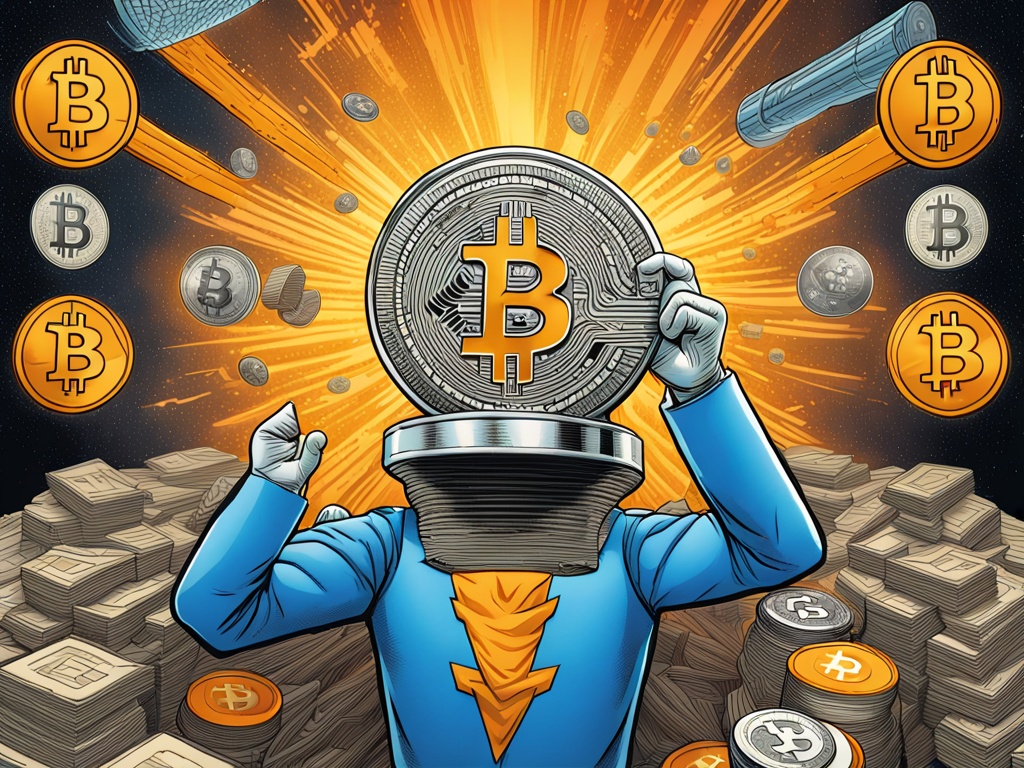Germany’s Crypto Revolution: Is Bitcoin About to Become a Currency Reserve?
Imagine grabbing your morning coffee in Berlin, paying with a swift tap of your phone, and knowing that part of the system supporting your transaction is backed by Bitcoin. Sounds futuristic, right? But this isn’t just a daydream anymore; Germany’s Free Democratic Party (FDP) is making serious moves towards changing the landscape of the crypto market, especially regarding Bitcoin and digital assets. So, what does this really mean for the broader crypto world, and is it worth your attention as a potential investor? Let’s dive into it!
Key Takeaways:
- The FDP is pushing for modern financial regulations that integrate Bitcoin and other cryptocurrencies into Germany’s financial framework.
- They propose expanding the role of BaFin (Germany’s financial supervisory authority) to support crypto innovations.
- A potential Bitcoin currency reserve by the ECB and the Bundesbank could be on the table, aiming to enhance the European monetary system.
- The party strives to balance digital innovation with the preservation of cash and user privacy.
A Strategic Shift in Financial Regulation
The FDP is not just dabbling in crypto; they are aiming for a major overhaul of how financial markets function in Germany. What’s fascinating is their acknowledgment of cryptocurrencies—specifically Bitcoin—multiple times in their election manifesto. This suggests a serious commitment to understanding and integrating digital assets.
-
Modern Oversight: The idea here is to create a regulatory environment that protects both consumers and institutions while still fostering innovation. It’s about finding that sweet spot where companies feel encouraged to develop new technologies without the fear of being squashed by rigid regulations.
- European Standards: The FDP wants Germany’s crypto regulation to align with European Union norms, preventing overly harsh laws that could push businesses away from Germany. This is particularly essential in today’s global market, where innovation can often be stifled by red tape.
Bitcoin as a Reserve Currency
Now, let’s get to the juicy part: the potential for the European Central Bank (ECB) and the German Bundesbank to include Bitcoin in their reserves. This isn’t just an idea floated in a casual conversation; it’s a deliberate strategic move proposed by the FDP.
-
Strengthening the Euro System: Including Bitcoin could be a game-changer. It might bolster the resilience of the European monetary system by diversifying reserves. In a world where inflation is a growing concern, having an asset like Bitcoin, which operates independently of traditional financial systems, can provide additional security.
- Endorsements from Influential Voices: Prominent entrepreneurs and investors are rallying behind this proposition, showing there’s a wave of support not only from political corridors but also from the tech community. This gives it a certain legitimacy that can soothe investor nerves.
Balancing Innovation and Tradition
Interestingly, the FDP isn’t all about abandoning traditional monetary practices. They still firmly believe in the existence of cash and advocate for convenient payment methods, hinting they want the best of both worlds.
- User Privacy: Privacy in digital transactions is a hot topic these days. The FDP insists that any digital euro should respect user privacy, which is crucial if they want to maintain public trust. No one wants to deal with a system that feels like Big Brother is always watching.
The Bigger Picture: Global Implications
So, why should you, as a potential investor, care about Germany’s crypto policy? Because this is just one piece of a larger puzzle. When a major economy like Germany takes steps to embrace Bitcoin, it creates ripples across the global financial scene.
-
Investment Opportunities: With Germany’s pivot towards crypto, it can open doors for investment in blockchain technologies, new cryptocurrencies, and established coins like Bitcoin. Countries watching Germany’s experiment might be inspired to take similar steps, creating a domino effect.
- Market Sentiment: The sentiment shift can lead to increased market stability and confidence among investors. If major players are backing Bitcoin as a reserve currency, it adds a layer of credibility that can attract both institutional and retail investors.
Practical Tips for Investors
-
Stay Informed: Keep an eye on Germany’s moves and the responses from the ECB. The crypto market is incredibly sensitive to regulatory changes, so understanding these dynamics is key.
-
Diversify: If you’re considering investing, balance your portfolio. Look not just at Bitcoin, but at emerging cryptocurrencies and blockchain technologies that might benefit from these regulatory changes.
- Engage with the Community: Join crypto forums, attend meetups, or follow crypto influencers. Engaging with others in the community can provide insights that you might miss by sitting on the sidelines.
Final Thoughts
The German FDP is planting the seeds of a crypto-friendly environment, aiming for big changes that could affect the global stage. As someone who loves the tech space and crypto, it’s exhilarating to watch such developments unfold.
But here’s a thought to ponder: If a major economy like Germany is willing to embrace Bitcoin, could this lead to a future where digital assets become as integral to financial markets as traditional currencies? What do you think the implications would be if other countries follow suit, and how might that alter your perspective on investing in crypto?





 By
By
 By
By
 By
By
 By
By
 By
By